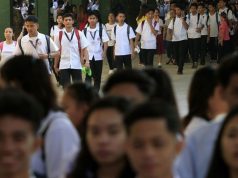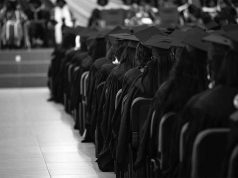A department of the University of Southern Mindanao (USM) said that a former faculty member and her advisee have already reached a “settlement” after the former’s apology letter earned criticism from the online community.
The university’s Department of English Language and Literature on Monday shocked Filipinos when it posted a letter from Riceli Mendoza apologizing to an AB English graduate for plagiarizing the latter’s thesis.
The letter, posted on the department’s Facebook page on May 6, reads:
TO THE READING PUBLIC:
My sincere apology to 𝗝𝗲𝗺𝗶𝗺𝗮 𝗠. 𝗔𝘁𝗼𝗸, AB English graduate and my advisee, for the emotional pain that I have caused you and your family. I am very sorry to publish your thesis in my name. I am truly sorry that I failed to recognize you as the author and the owner of the published paper/article. Instead, I claimed it as my own. I honestly acknowledge my fault and rest assured that this may never happen again in the history of academic endeavor. I earnestly implore your forgiveness. Please accept my sincere apology, Jemima and family.
I am Riceli C. Mendoza, a former faculty member of the Department of English Language and Literature, University of Southern Mindanao, Kabacan, Cotabato.
Sincerely,
(Sgd) 𝗥𝗜𝗖𝗘𝗟𝗜 𝗖. 𝗠𝗘𝗡𝗗𝗢𝗭𝗔
The comments section of the post was turned off, unlike other posts on the department’s Facebook page.
The apology letter has earned over 24,000 likes and reactions and 15,000 shares on the platform.
Some Filipinos expressed their opinions on the issue on their respective Facebook accounts instead.
“Dr Riceli C. Mendoza, one time Director of USM’s University Quality Assurance Center, is on the spotlight for claiming her students’ research as her own,” writer Karlo Antonio Galay David said on his Facebook page on Monday.
“The case of Jemima Atok is apparently not isolated. The lack of ethics from such a high ranking administrator of the university is troubling, but the poor quality of writing in this public statement is even more shocking!” he added.
“(Observe how the letter only admits ‘failure to recognize the author,’ there is no explicit acknowledgment of the intellectual property theft. It almost sounds like she just committed a clerical error),” David said.
Another Facebook user said that educators should also be “held liable” if plagiarism demands a strong punishment for students who claim other work as their own.
“If students get heavily punished by the academe for plagiarism and theft, the more educators should be held liable, lol,” the user wrote in a post.
“Saw the public apology a USM professor posted for publishing her advisee’s research under her name. WTF? She’s in the academe [and] a research adviser, for that matter! How can she not know about plagiarism?! Did she actually [think] she can get away from stealing someone else’s work?” another user said.
On Tuesday, the department clarified that Mendoza and the former student have already settled the matter in response to reactions to the viral apology letter.
“The case of publishing her advisee’s paper under her name is solely Dr. Riceli C. Mendoza’s decision, and the Department has no knowledge of the matter until a complaint was filed,” it said on May 7.
“The posting of the apology letter on the Department’s page is the pre-condition of the complainant to desist to which the respondent agreed,” it added.
“Therefore, while the post will remain on the page, we encourage the public to cease formulating their own facts because the complainant and respondent have already reached a mutually acceptable settlement,” the department said.
“We pray for everyone’s healing,” it concluded.
Similar to the apology letter post, its comments section has been turned off as well.
Meanwhile, some Facebook users who know the former student offered their sympathies following the incident.
“Hala, grabe naman ito,” a user wrote, sharing the apology letter.
“Salamat sa pagdamay,” Atok responded in the comments.
“Grabe, ma’am. Hope you’re doing alright po,” the user wrote.
“I’m doing okay. Better,” Atok replied.
In the academe, plagiarism is a major offense against students.
Merriam-Webster defines it as “an act or instance of plagiarizing” or “something plagiarized.”
The dictionary defines plagiarizing as “to steal and pass off (the ideas or words of another) as one’s own” or to “use (another’s production) without crediting the source.”
LinkedIn, an employment-focused platform, said that plagiarism is an unethical academic dishonesty that “disadvantages the original author of the plagiarized work as they don’t receive proper credit for their words and ideas.”
“By resorting to plagiarism, students miss the opportunity to research, develop and fully understand their academic topic. The practice hinders the learning process and has a detrimental effect on the quality of writing,” it added.









